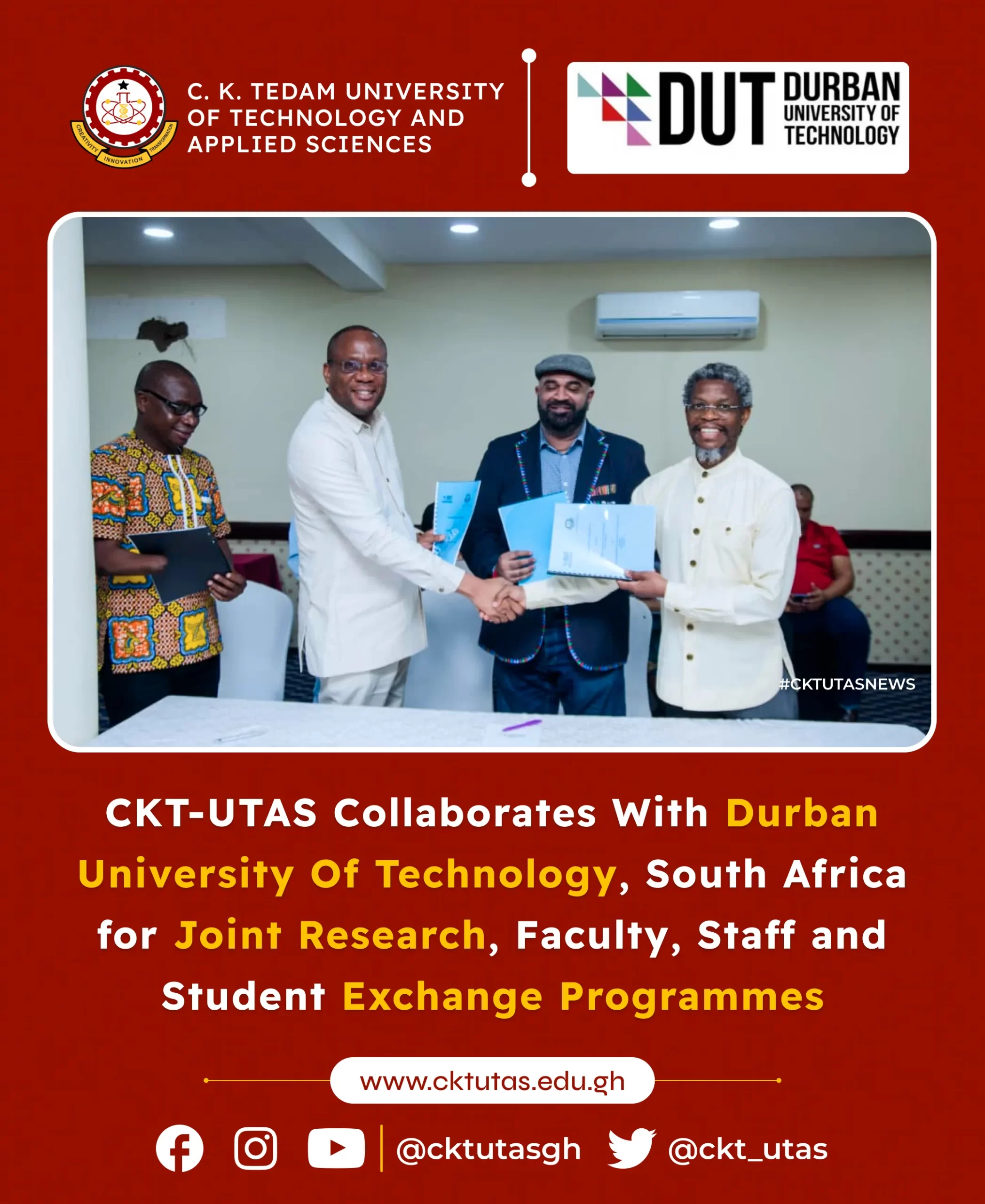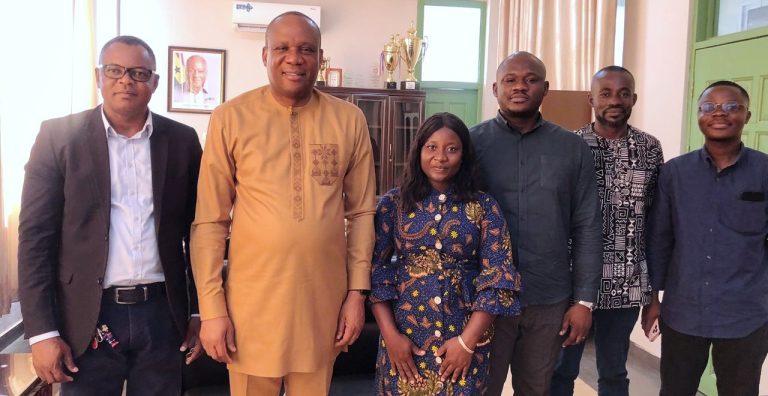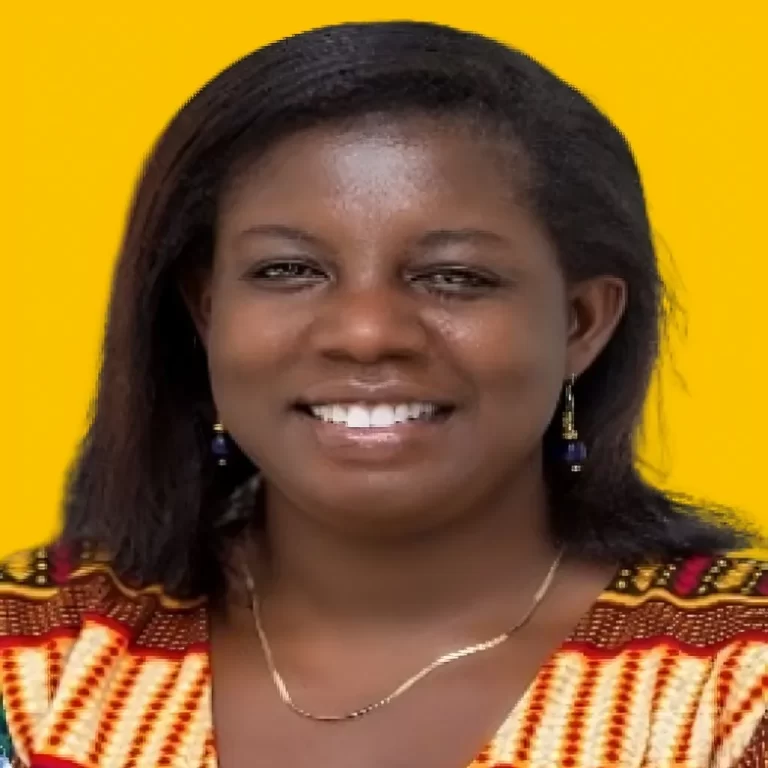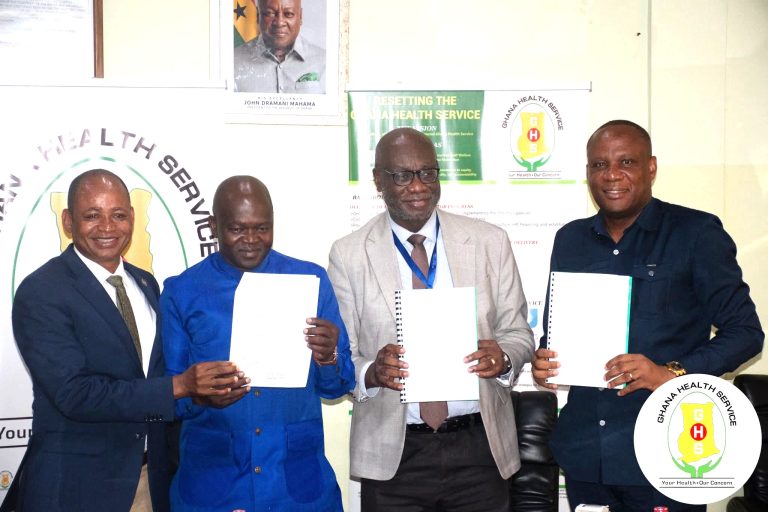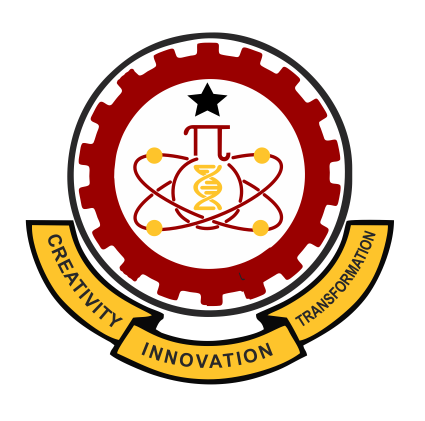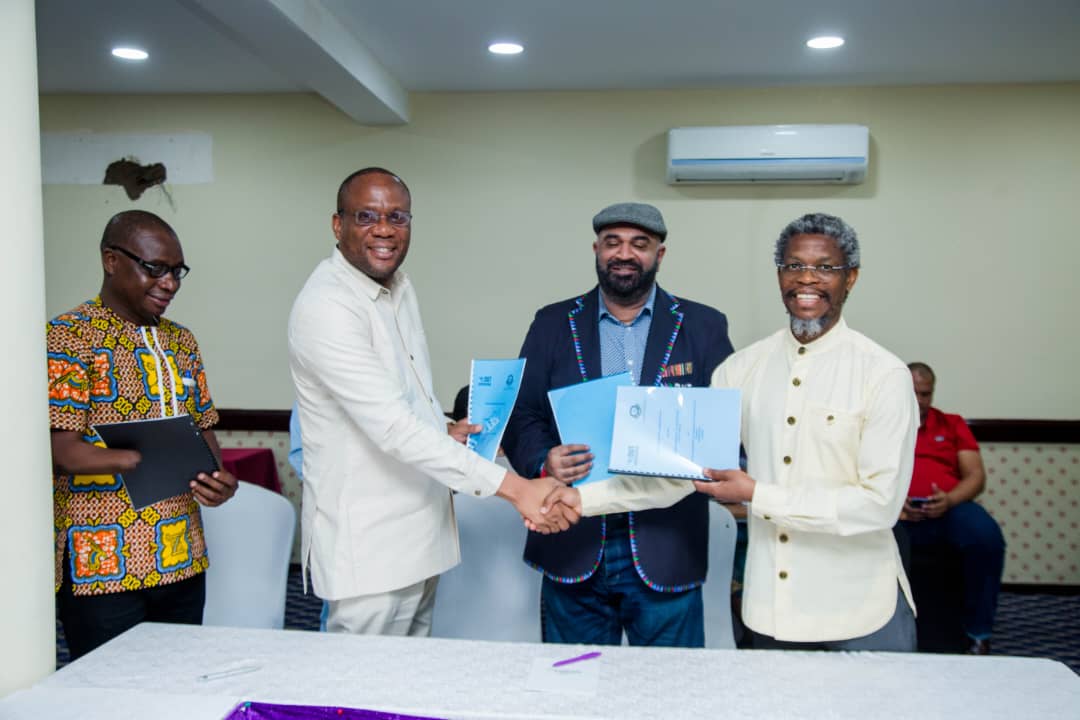

In an unprecedented wave of great strides, the C. K. Tedam University of Technology and Applied Sciences has joined a strategic alliance of globally renowned research institutions to build synergies for academic excellence. This was made possible through the signing of a Memorandum of Understanding (MoU) with the Durban University of Technology (DUT), South Africa which is a key member of the alliance.
The Vice-Chancellor, Professor Albert Luguterah, initiated for CKT-UTAS, while Professor Fulufhelo Nemavhota, Deputy Vice-Chancellor, Innovation and Engagement, signed for the Durban University of Technology.
The signing was witnessed by Prof. F. Netswera, Executive Dean, and Dr. Lavern Samuels, Director, International Education and Partnerships, Durban University of Technology, Professor Kwara Nantomah, Director, Academic Planning and Quality Assurance, and Prof. Moses Abdullai Abukari, Head, Center for International Students and Scholars of C.K. Tedam University of Technology & Applied Sciences.
The MoU focuses mainly on joint research, collaborative programmes/courses, sharing of library resources, sponsoring and conducting joint conferences and seminars, as well as faculty, staff, and student exchange programmes.
Accordingly, at a briefing session held in the Academic Board Chamber on Thursday 3rd March 2025, Professor Luguterah urged Deans and Heads of Departments drawn from various schools, to seize the opportunity presented by the agreement reached between the two institutions to identify programmes/courses for collaboration and also seek to advance the skills, expertise, and experiences of faculty, staff, and students through the exchange window.
In a related development, CKT-UTAS has taken steps to enhance its presence within the Francophone fraternity by renewing its ties with the Agence Universitaire de la Francophone (AUF).
The Francophone University Association (AUF) brings together more than 1000 higher education institutions, networks, and scientific research centers that use the French language in 119 countries. Member institutions benefit largely through access to grants, research partnerships, and global visibility.


